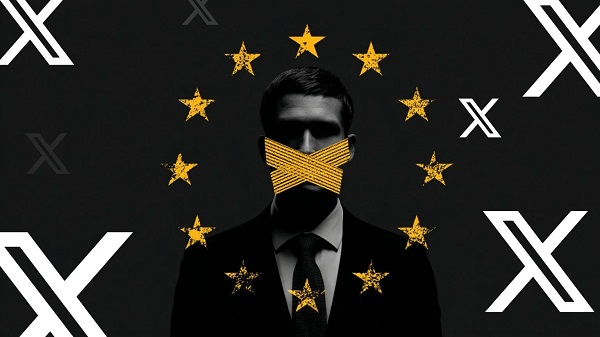National
Jordan Peterson calls for public apology from Trudeau over accusations about ties to Russia

From LifeSiteNews
The prominent psychologist is also considering legal action against Canada’s prime minister.
Popular psychologist Dr. Jordan Peterson demanded an apology from Justin Trudeau after the Canadian prime minister accused him last week of being funded by Russian state media.
In a X post on Friday, Peterson wrote, “Dear @JustinTrudeau Here are the options: 1. I am a Russian agent and traitor 2. You are a liar. 3. You are incompetent.”
Peterson observed that “before we assume the first is true some shred of evidence, no matter how flimsy, should be adduced.”
“If none is forthcoming, then one or both of the next two possibilities must be true,” he wrote.
Peterson then asked for an apology from Canada’s leader.
“Furthermore, a maximally public apology (that means press conference) is due. Your move Sir Take note @TuckerCarlson.”
In another X post on the same day, Peterson made fun of Trudeau’s claims by posting a fake image of himself wearing a Russian hat, saying the leader should use the (fake) photos to implicate him.
“Here Use this @JustinTrudeau It’s more convincing than Whatever You have For sure,” he wrote.
As reported by LifeSiteNews last week, Trudeau claimed U.S. media personality Tucker Carlson and Peterson are being funded by the state media outlet Russia Today. He also blamed Russia for “amplifying the chaos” surrounding the 2022 Freedom Convoy protests.
Trudeau made the claim last Wednesday under oath during testimony at the Foreign Interference Commission, after he was asked about Russia’s alleged role in the Freedom Convoy.
Peterson, as reported by LifeSiteNews, confirmed he is considering legal action against the prime minister.
Meanwhile, Trudeau has praised China for its “basic dictatorship” and has labeled the authoritarian nation as his favorite country other than his own.
Peterson for his part has been critical of Trudeau and his Liberal government for years.
Censorship Industrial Complex
Liberals gain support for ‘hate speech’ bill targeting Bible passages against homosexuality

From LifeSiteNews
The Bloc Québécois are now backing the hate-speech Bill C-9 in Canada after the Liberal government agreed to take away a religious exception.
A Liberal government bill to criminalize parts of the Bible dealing with homosexuality under Canada’s new “hate speech” laws looks closer to becoming reality after gaining the support of the Bloc Québécois party when a religious exception was removed.
The National Post reported that the Bloc Québécois are now backing the hate-speech Bill C-9 after the Liberal government of Prime Minister Mark Carney agreed to take away a religious exception.
Bill C-9, the Combating Hate Act, as reported by LifeSiteNews, has been blasted by constitutional experts as allowing empowered police and the government to go after those it deems to have violated a person’s “feelings” in a “hateful” way.
As reported by LifeSiteNews, a government insider revealed that the Liberal government plans to remove religious exemptions from Canada’s hate-speech laws by modifying a bill. This would affect passages of the Bible dealing with homosexuality.
A recent media report states that the Carney Liberals and the separatist Bloc Québécois want to amend Bill C-9, which would “criminalize sections of the Bible, Quran, Torah, and other sacred texts,” Conservative leader Pierre Poilievre noted yesterday on X.
Both the Liberals and the Bloc are on board to support the removal of a religious exemption in Canada’s Criminal Code for the bill.
On Monday, Canadian Justice Minister Sean Fraser was rather mum on the deal made with the Bloc, which now says the deal is on thin ice due to canceled justice committee meetings.
Fraser said that it is his “priority” to see “this bill adopted,” but admitted it will need the support of other parties.
“That’s going to require that we collaborate with different parties who have different points of view,” he said.
However, it appears that such meetings will take place this week, but Conservative Party MPs have promised to fight the removal of the religious exception.
Liberal MP Marc Miller had said earlier in the year that certain passages of the Bible are “hateful” because of what it says about homosexuality, and those who recite the passages should be jailed. As reported by LifeSiteNews, he was recently appointed as a government minister by Carney.
Canadian Conservative MP Leslyn Lewis blasted the Carney Liberals’ federal plan to criminalize parts of the Bible as an attack on “Christians,” warning it sets a “dangerous precedent” for Canadian society.
In response, the party launched a petition over fear that religious texts could be criminalized.
Great Reset
Proposed ban on euthanasia for mental illness sparks passionate debate in Canada’s Parliament

From LifeSiteNews
“When a person is standing on the edge, the role of a responsible nation is to pull them back.”
Conservative MP Tamara Jansen’s Bill C-218—the “Right to Recover Act”—was debated in Parliament on Friday. The legislation would ban euthanasia for those suffering solely from a mental illness, which was legalized in 2021 with the Trudeau government’s Bill C-7, but subsequently delayed. It is set to come into effect in 2027, pending a parliamentary report.
Tamara Jansen led with a passionate and powerful speech highlighting the desperate need for Bill C-218; Conservative MP Andrew Lawton gave a supporting speech in which he shared his own experience with a nearly successful suicide attempt. Two Liberal MPs and a member of the Bloc Quebecois pushed back in support of euthanasia for mental illness.
Jansen moved that Bill C-218 be read the second time and referred to committee, and asked her fellow parliamentarians to imagine someone’s son, in his forties, struggling with a painful illness and struggling with addiction, depression, and anxiety. He is supported by his family, she said, and they are doing their best but struggling. When he finally gets a psychiatrist appointment, he hopes he might finally get real help.
“He is vulnerable, scared and hanging on by a thread,” Jansen said. “At that appointment, instead of being offered a plan to get him stable, MAID is raised as an option. The assessment moves ahead, and before he ever receives proper support for his mental health or addictions, he is approved. His MAID provider is the one who drives him to the place where his life is ended. This is someone’s son who needed help, not a final exit.”
“Believe it or not, this actually happened here in Canada, and this is where we are headed if we do not act,” she emphasized. “Unless this Parliament chooses a different path, Canada will allow MAID for people whose only condition is mental illness. That means men and women struggling with depression, trauma or overwhelming psychological pain could be steered toward death by a system that too often cannot offer timely treatment, consistent follow-up or even basic support.”
Jansen noted that when Parliament last debated assisted suicide, mental illness was not included in the core discussion—but that it was added “in a last-minute Senate amendment to Bill C-7.” Since then, Canadians from all walks of life have spoken clearly against this dangerous expansion. “Psychiatrists across Canada, including the chairs of psychiatry at all 17 medical schools, have told us plainly that there is no reliable way to predict when a mental illness is irremediable, which is a requirement in the MAID law,” she reminded her colleagues.
READ: Canadian broadcaster’s positive coverage of disability advocate’s euthanasia sends terrible message
“We must ask: who receives suicide prevention and who is guided toward MAID?” she asked. “If a person suffering from depression calls a crisis line tonight, do we encourage them to hold on or do we quietly redirect them to an assessor? What principle decides the answer? What medical test? What ethical standard? There is none. That is because the very feelings that drive someone to seek MAID, hopelessness, despair or the belief that they are a burden, are the same signals that every suicide prevention worker is trained to treat as a cry for help.”
Jansen also noted that Canada’s planned expansion has been condemned in the international community. “International human rights experts have raised the alarm, including the UN Committee on the Rights of Persons with Disabilities, which has urged Canada to step back. It warns that our trajectory risks discriminating against people with disabilities and mental illness and recommends repealing this expansion entirely. This is what Bill C-218 would do.” She cited several heartbreaking examples from Ontario’s MAID death review committee findings:
They describe a man who had cancer. I will call him Bill. Earlier in his illness, he had briefly mentioned MAID, as frightened patients tend to do. By the time he was assessed, he was delirious, confused and heavily sedated. His own medical team made it clear that he no longer had the capacity to make major decisions, yet a MAID assessor shook him awake, took the faint motion of lips as consent, withheld sedation, obtained a rushed virtual second opinion and ended his life that same day. Bill was not stable. Bill was not capable. He did not understand what was happening.
Alana Hirtle, the Liberal MP for the Nova Scotia riding of Cumberland-Colchester, responded by attempting to divert from the issue. She told Jansen that her father died by assisted suicide in August 2024, after suffering from “four different types of cancer over five years,” and stated that she “fully supported his choice” and that she “supported the process as it took place and was there throughout it.” She then asked if Jansen had voted for the “initial legislation”; Jansen told her she was not an elected MP at the time.
Claude DeBellefeuille, a Bloc Quebecois MP, then claimed that he was “stunned” by what he had heard, stating that Jansen had been misleading “by claiming that the law allows for medical assistance in dying when major mental illness is the sole underlying disorder” when the “member knows that in 2027, a joint committee of members and senators will make a decision based on the recommendations of the Department of Health.” While he did, somewhat surprisingly, agree that “the medical community is not ready and will probably not be ready in 2027,” he insisted that Jansen “has simply found a way to assert her opposition to medical assistance in dying.”
“We simply do not have the medical grounds to declare that a life is beyond hope,” Jansen responded. “We have already seen cases where people were approved for MAID not because their condition was truly irremediable but because they lacked housing, treatment or basic support. That is not medicine; that is a system misreading desperation as destiny. … When a person is standing on the edge, the role of a responsible nation is to pull them back.”
Juanita Nathan, the Liberal MP from Pickering-Brooklin, gave a speech essentially reiterating the government’s talking points. More research is needed, she said, but fundamentally the “panel concluded that the existing Criminal Code safeguards, when supported by the development of MAID practices standards and the implementation of other recommendations, are adequate to allow for safe provision of MAID to people whose sole underlying medical condition is a mental illness.”
MP Andrew Lawton recounted his own suicide attempt, in which he almost lost his life and spent seven weeks in the hospital, during which he was resuscitated multiple times and on life support. He noted that on that “horribly dark and sad December day in 2010,” he could never have imagined that he would one day be standing in the House of Commons, happily married with a successful career. It is that experience, he said, which spurs him to speak so forcefully for Bill C-218—because “if the laws that are coming into force in 15 months had been there 15 years ago, I would probably be dead right now.”
When Bill C-218 was introduced, Lawton launched the “I Got Better” campaign, inviting Canadians to share their own stories.
He shared several with the House—while a number of the Liberal MPs talked loudly with each other across the House, even laughing out loud at each other. He shared the story of an Ottawa lawyer, who feared using MAID if depression should return. He shared the story of a man who struggles with mental illness and has attempted suicide and is afraid of what he might do if MAID is available. A woman who had been in a long-term abusive relationship told him that she would have used MAID if it had been available.
Lawton detailed several other stories and reminded his colleagues of testimony they had previously heard. “Dr. John Maher testified before Parliament that 7% of those who attempt suicide die by suicide,” he said. “That means that 93% of people who, at one or multiple points, want to end their life eventually get over that. The success rate of MAID is 100%. By design, this is a policy that will give up on people.”
Lawton’s closing lines summed up the stakes. “These are real people,” he said. “There are faces to this. If Bill C-218 does not pass, people will die. We have a right and a duty to stand up for those who need it. I will be proudly supporting this bill, and I thank my colleague so much for introducing it.”
You can support Bill C-218 and submit your own story to MP Andrew Lawton here.
-

 COVID-192 days ago
COVID-192 days agoUniversity of Colorado will pay $10 million to staff, students for trying to force them to take COVID shots
-

 Bruce Dowbiggin2 days ago
Bruce Dowbiggin2 days agoIntegration Or Indignation: Whose Strategy Worked Best Against Trump?
-

 espionage2 days ago
espionage2 days agoWestern Campuses Help Build China’s Digital Dragnet With U.S. Tax Funds, Study Warns
-

 Bruce Dowbiggin2 days ago
Bruce Dowbiggin2 days agoWayne Gretzky’s Terrible, Awful Week.. And Soccer/ Football.
-

 Agriculture2 days ago
Agriculture2 days agoCanada’s air quality among the best in the world
-

 Health1 day ago
Health1 day agoCDC Vaccine Panel Votes to End Universal Hep B Vaccine for Newborns
-

 Business1 day ago
Business1 day agoCanada invests $34 million in Chinese drones now considered to be ‘high security risks’
-

 Business1 day ago
Business1 day agoThe EU Insists Its X Fine Isn’t About Censorship. Here’s Why It Is.






